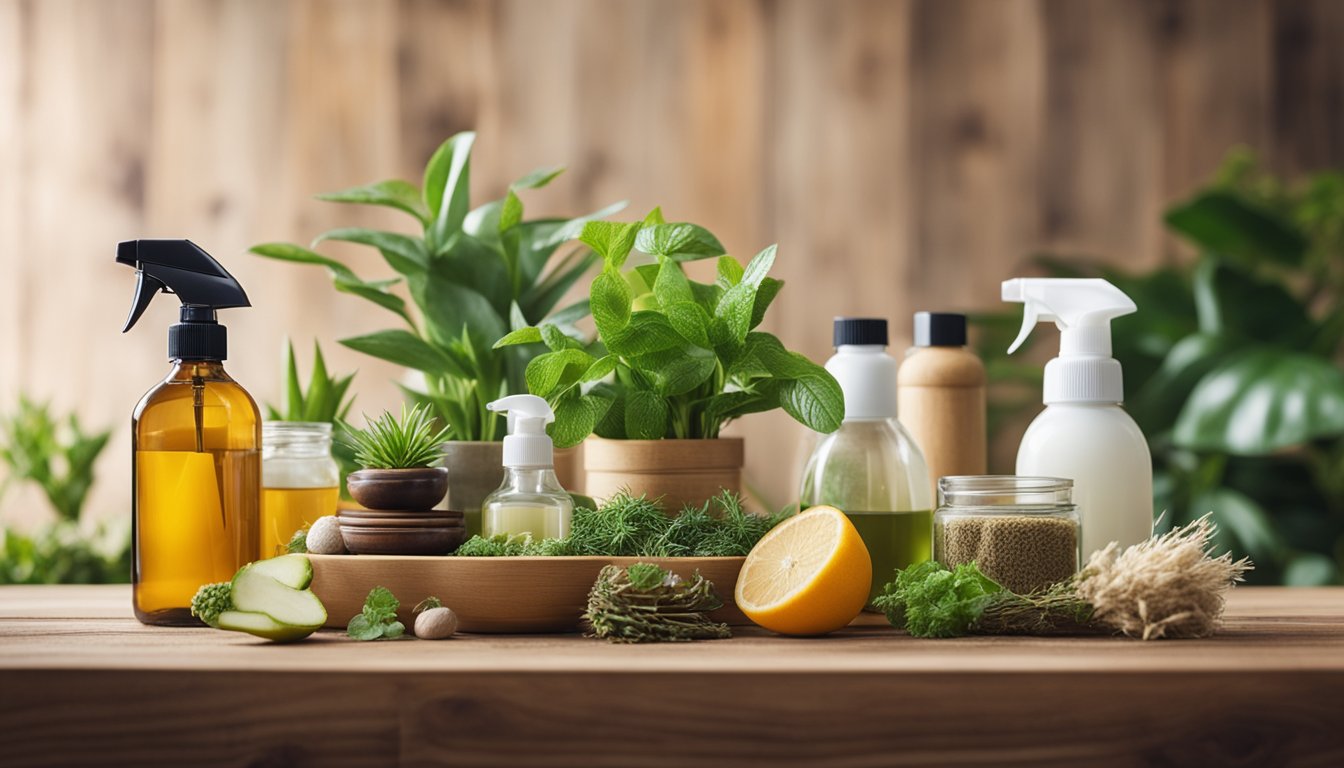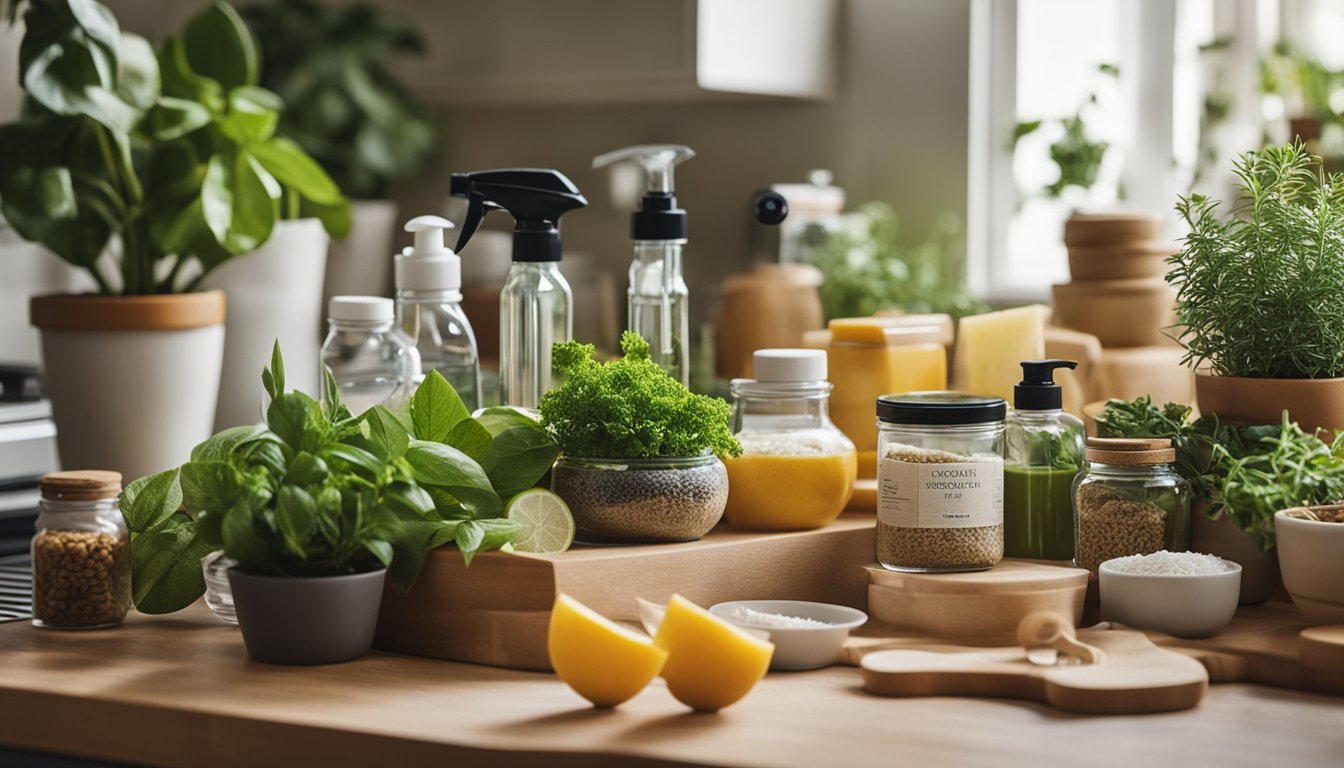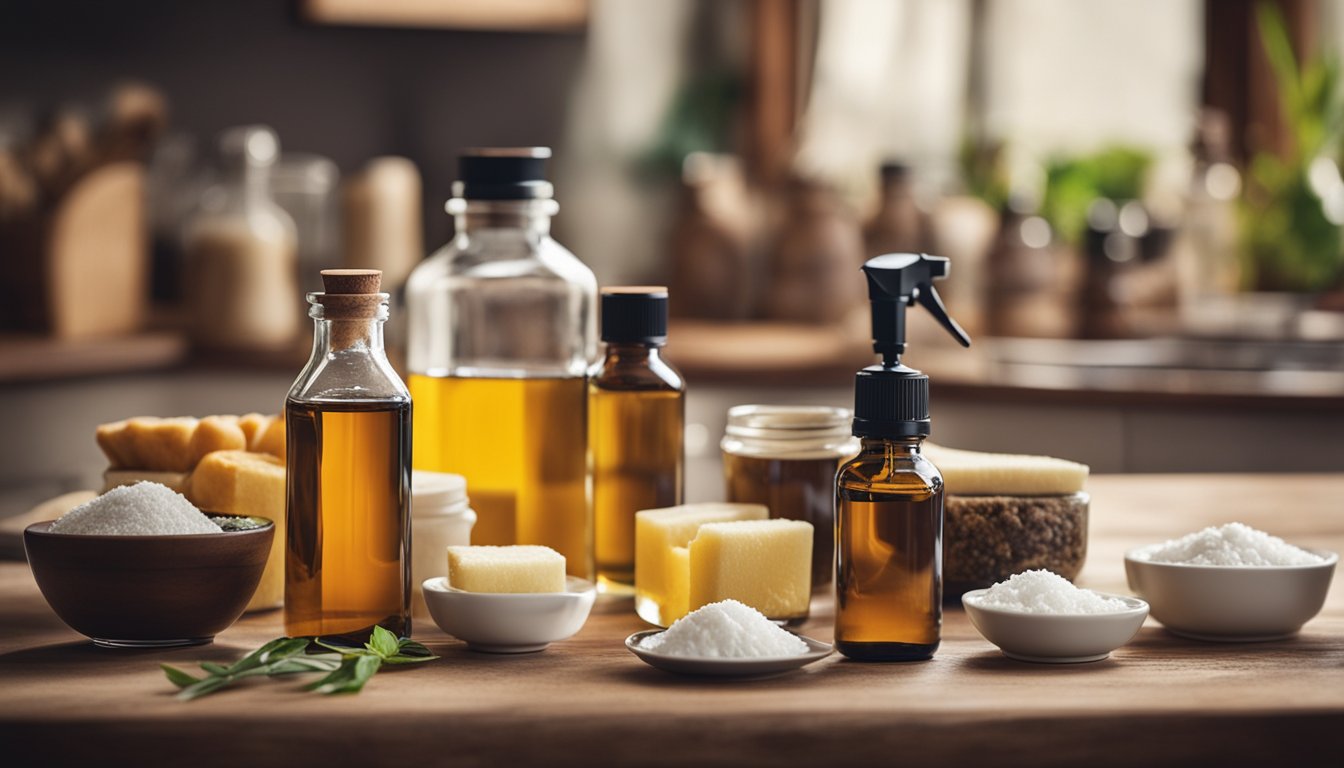Late updated: 28 Mar 2025 15:03
Written by: Sarah Hollister
Eco-Friendly DIY Cleaning Solutions: Transform Your Home with Simple Recipes
Creating a cleaner, greener home doesn't have to mean shelling out on expensive products. We can whip up effective and safe cleaning solutions with ingredients right in our cupboards. Simple, everyday items like baking soda and vinegar can transform the way we tackle dirt and grime.

Not only do these natural solutions benefit our health by reducing exposure to harsh chemicals, but they also make a positive impact on the planet. Making our own cleaning products contributes to sustainable living by cutting down on plastic waste and minimising pollution.
With a plethora of DIY recipes to explore, from all-purpose sprays to deep-cleaning scrubs, we invite you to join us in embracing eco-friendly cleaning methods. Discover how easy it is to transition to sustainable practices that uphold cleanliness and care for our environment.
Key Takeaways
- Eco-friendly cleaning uses simple, everyday ingredients.
- DIY solutions reduce exposure to harsh chemicals.
- Sustainable cleaning cuts down on waste and pollution.
Fundamentals of Eco-Friendly DIY Cleaning
Our exploration into eco-friendly DIY cleaning reveals the potential for greener living by using natural ingredients that replace harsh chemicals. The benefits extend beyond clean homes to improved health and environmental sustainability.
Understanding Natural Ingredients
Incorporating natural cleaning ingredients brings both effectiveness and simplicity to our cleaning routines. Household staples such as baking soda and vinegar are powerful allies. Vinegar’s acetic acid content makes it a natural disinfectant, while baking soda's mild abrasiveness and deodorising properties tackle tough stains. Lemon juice, rich in citric acid, offers antimicrobial and grease-cutting abilities. Essential oils like tea tree or lavender not only add pleasant scents but also enhance disinfectant properties. Castile soap and olive oil provide gentle, sustainable cleaning for various surfaces.
Using these biodegradable materials reduces reliance on chemical-based products, lessening our footprint on the planet. Besides their cleaning power, consistency in natural ingredient use contributes to non-toxic, healthy households. We aim to balance effective cleaning with environmental responsibility.
Health and Environmental Benefits
Adopting DIY cleaning solutions improves both health and the environment. Non-toxic ingredients mean reduced exposure to potentially harmful chemicals, favourably impacting indoor air quality and overall health. The absence of volatile compounds found in conventional cleaners minimises indoor air pollution. Families benefit from fresher air and fewer allergy triggers, promoting a safer living space.
Using natural cleaners supports sustainable cleaning practices. Ingredients are typically biodegradable, fostering waste reduction and water conservation. This approach to cleaning diminishes pollution, encourages healthier ecosystems, and aligns with environmentally conscious living. Engaging in these practices not only safeguards our households but also contributes to a global movement towards ecological stewardship.
DIY Solutions and Applications

Our approach focuses on crafting effective eco-friendly cleaning solutions that cater to different needs around the home. We emphasise the use of natural ingredients and everyday items like baking soda and vinegar to create efficient and safe DIY cleaners.
All-Purpose Cleaners and Disinfectants
Creating all-purpose cleaners involves using basic household items. A simple recipe consists of mixing equal parts of distilled white vinegar and water in a spray bottle. Adding a few drops of essential oils, such as lavender or tea tree, enhances the scent and increases the disinfectant properties.
Hydrogen peroxide serves as an excellent natural disinfectant. When applied to surfaces, it helps in eliminating germs without leaving toxic residues. This makes it useful in high-contact areas like door handles and light switches. For a more robust cleaning solution, combining vinegar, baking soda, and water works well on various surfaces.
Specific Room and Surface Cleaners
Different rooms in our homes require specific cleaners. In the kitchen, a mixture of lemon juice, vinegar, and water can effectively tackle grease on counters and cooktops. For bathroom cleaning, a paste of baking soda and water can scrub away grime without scratching surfaces. Adding castile soap to this mix can help with tougher stains.
Hardwood floors benefit from a simple solution of vinegar and water. When dealing with carpets, sprinkling baking soda, leaving it for 15 minutes, then vacuuming can help neutralise odours. These solutions provide both eco-friendly alternatives to store-bought chemicals and are simple to prepare.
Tools and Storage for Homemade Solutions
Having the right tools is crucial for effective cleaning. Microfiber cloths are essential for dusting and wiping surfaces as they catch particles without the need for additional cleaning agents. A good supply of spray bottles allows us to store and easily use our DIY cleaners as needed.
Proper labeling of each bottle with its contents and the date of preparation ensures safety and efficiency. Using glass containers, particularly for solutions with essential oils, prevents chemical reactions that can occur with plastic. These practices help maintain the effectiveness and sustainability of our homemade solutions.
Frequently Asked Questions

We often encounter queries about creating effective and eco-friendly cleaning solutions at home. These questions guide us in making natural cleaners that are both safe and sustainable, using ingredients like vinegar, baking soda, and essential oils.
What are the most effective homemade cleaning solutions for general use?
Homemade cleaning solutions can tackle numerous tasks around the house. For general use, vinegar and water mixed in equal parts is effective for surfaces, while a paste made of baking soda and water works well on tough stains.
How can I create a natural cleaning spray with vinegar?
A simple and effective cleaning spray can be made by mixing one part white vinegar with one part water in a spray bottle. Adding a few drops of essential oils like lavender or lemon can enhance the scent and disinfecting properties.
What combination of ingredients works best for a DIY all-purpose cleaner?
To make an all-purpose cleaner, combine 2 cups of water, 1 cup of vinegar, a teaspoon of baking soda, and 10 drops of essential oil. This combination effectively cleans most surfaces without leaving residues.
In what ways can baking soda be utilised for eco-friendly cleaning?
Baking soda is versatile, effectively deodorising and cleaning surfaces. It can be sprinkled on carpets before vacuuming for odour removal or mixed with water to clean sinks and tubs.
How does one concoct a non-toxic cleaner for home environments?
Creating a non-toxic cleaner involves using safe ingredients like vinegar, baking soda, and mild soap. By avoiding harsh chemicals, we ensure a healthy environment. Simple mixtures often achieve great results without risk to our health.
What are the recommended natural methods to maintain a clean household?
Maintaining a clean home naturally involves regular dusting with microfibre cloths, using vinegar and water for glass cleaning, and lemon peels for freshening garbage disposals. These methods reduce the need for chemical-laden products while effectively keeping our space clean.
